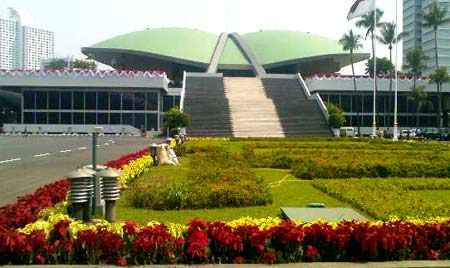 Tensions between the two faction groups that were united in the Red and White Coalition (KMP) and the Great Indonesian Coalition (KIH) resurfaced. This time the cause was related to the election of the chairman of the DPR apparatus. The desire to wipe out the position of DPR leadership and completeness by one side results in unfair treatment and violates the principle of representation of all political forces in the DPR.
Tensions between the two faction groups that were united in the Red and White Coalition (KMP) and the Great Indonesian Coalition (KIH) resurfaced. This time the cause was related to the election of the chairman of the DPR apparatus. The desire to wipe out the position of DPR leadership and completeness by one side results in unfair treatment and violates the principle of representation of all political forces in the DPR.
This chaos can of course disrupt the implementation of the DPR’s duties, such as setting the agenda for equipment, preparing the 2015-2019 National Legislation Program (Prolegnas), selecting KPK members, etc. Indirectly, the resulting impact has the potential to hamper a number of government programs. Not only that, the budget of IDR 16.24 billion (which was used to pay salaries and allowances as well as costs for meetings to form DPR equipment) was wasted. Later, it was agreed that an effort to end the chaos in the DPR was to increase the number of commissions and chairmen of the apparatus.
Responding to the latest developments in the problems plaguing the DPR, we from the Civil Society Coalition for Changes in the MD3 Law, which consists of various organizations that focus on parliamentary reform, urge:
(1) The solution option in the form of increasing the leadership positions of the DPR apparatus and the number of commissions will only make it difficult for several factions, especially small factions, to place their representatives there. As a result, the decision-making process at the commission will take longer and a small number of factions will be overwhelmed because the workload exceeds that of the faction membership itself; And
(2) The consequence in the form of a revision of the MD3 Law should not provide a legal basis for increasing the leadership positions of the DPR apparatus or the number of commissions. However, as an entry point, it restores the principle of proportionality in the mechanism for selecting the DPR leadership and its fittings. The existence of the principle of proportionality has been tested since the DPR period 1999 – 2004. Even the existence of a small faction such as the Gerinda Party Fraction (in the DPR period 2009-2014) still allows them to occupy the position as chairman of the DPR’s apparatus (at that time as Chair of the State Financial Accountability Agency/BAKN ). Replacing the proportionality scheme with a nomination policy based on a package scheme through Law no. 17 of 2014 concerning the MPR, DPR, DPD and DPRD, is not accompanied by logical arguments and tends to be part of political calculations that want to dominate the DPR absolutely.
Jakarta, 10 November 2014
- Danardono Siradjudin (Pusat Telaah dan Informasi Regional – PATTIRO 08111870300)
- Elizabeth Koesrini (Komunitas Indonesia untuk Demokrasi – KID 081384697372)
- Ibrahim Zuhdy Fahmy Badoh (Transparency International Indonesia – TII 081319684443)
- Hendrik Rosdinar (Yayasan Penguatan Partisipasi, Inisiatif dan Kemitraan Masyarakat Indonesia – YAPPIKA 08111463983)
- Ronald Rofiandri (Pusat Studi Hukum & Kebijakan Indonesia – PSHK 0818747776)
- Roy Salam (Indonesia Budget Center – IBC 081341670121)
- Sulastio (Indonesian Parliamentary Center – IPC 0811193286)




